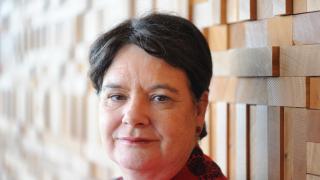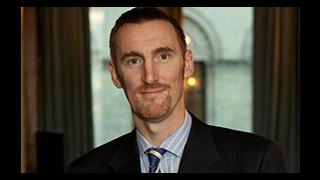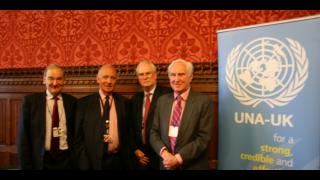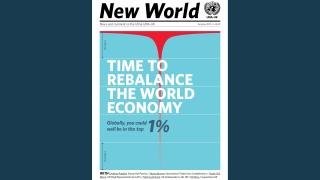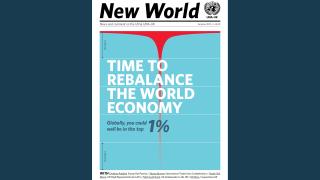
The cream rises to the top
Few doubt the crucial contribution women can make to society if given the benefits of gender equality and empowerment. The Millennium Development Goals point to the crying needs of girls and mothers in developing countries working to improve their education and health. However combining family and private life with work commitments is still a big challenge, even in developed countries.
There is large body of evidence that shows gender equality not only helps women, but contributes to the growth of economies. Small wonder then that a growing number of companies with foresight are beginning to increase the involvement of women in their work. In 2012 it is still common for a man with less experience than a woman to be promoted above her, and for a talented woman to be overlooked. This practice is outdated: women should be equal partners with men in all aspects of daily life, including the workplace.
Research shows that if we want a reasonable percentage of women at Board level of companies, young women need training and support all the way up the employment ladder, not just at the top.
The UK National Committee of UN Women marked International Women’s Day 2012 with the launch of the UN Women UK Corporate Network. The Network has been created with the help of four founding members – Barclays Wealth, BNP Paribas, Ernst & Young and Unilever, to work to bring about these desirable changes.
Another useful initiative is the UN Women’s launch of the Women’s Empowerment Principles, (WEP). This is the first global corporate code of conduct focusing exclusively on empowering and investing in women, emphasising boardroom commitment to diversity. WEP launched here in the UK in April 2012.
At a recent UN Women UK meeting on Women in Leadership, young businesswomen shared their own experiences with the ‘glass ceiling’:
- women are afraid of being branded aggressive or pushy and may let a less experienced man outshine them
- in job applications, men will apply for a job which lists only 20% of their skills, while women won’t apply unless the form lists 80% of their skill. So women deselect themselves
- men call networking part of their work and meet at the lunch break, linking to outside people who may help them with introductions. However a woman will use her lunch break to catch up on work or sort family matters. A man will set a meeting after work, while the women have to go home – and the men like it because they find it easy to talk with men
- a woman thinks people will notice how hard and well she works, and be rewarded, but she is not noticed - she needs to speak out
Mentorship can make all the difference in giving support and helping women to get through these barriers.
Cultural expectations often force women to make more compromises in their careers than men. Juggling family life and the care of children with a job often causes women to fall behind their male colleagues, though this need not be the case. Support from family members, employers and the government can do much to share the ‘career costs’ of parenthood.
The useful McKinsey Women Matter: Making the Breakthrough report, shows of 235 European companies, 63% had 20 different initiatives for gender diversity and women’s development programmes, using indicators to identify sticking points, adjusting processes and policies accordingly. There are four main elements of achieving an effective initiative: senior management commitment, women leading by example, proper analysis of obstacles to overcome with targets incorporated into governance policy, and, most importantly, changing unhelpful attitudes and beliefs of both men and women.
Gender diversity needs to be hard wired into a company’s culture. This will benefit women and society, also reduce poverty. We look forward to next year’s Commission on the Status of Women which will study “Engaging young women and men, girls and boys, to advance gender equality”.
Sally Spear is a UNA-UK member and sits on the Executive Committee of WACUNA and the UN Women UK National Committee.





